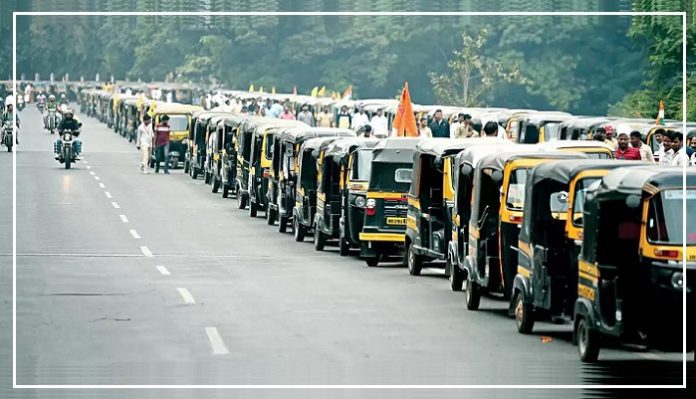The Pune Regional Transport Office (RTO) has recently made a decision to ban four taxi aggregator companies, namely Ola, Uber, K Valuation Technologies, and Rapido, from operating autorickshaw services in Pune.
This decision has dealt a significant blow to these companies, as they had sought permits to offer mobile app-based autorickshaw services in the city.
The ban is in effect immediately, and the companies have been directed to suspend their autorickshaw services.
Reasons for the Ban
The ban on Ola, Uber, K Valuation Technologies, and Rapido from offering autorickshaw services in Pune comes in the wake of a Bombay High Court order that directed Rapido to cease operations in Maharashtra by January 20, 2023, following the rejection of their application by the Pune RTO.
Subsequently, a meeting was convened by Pune district collector Rajesh Deshmukh, which involved Pune Regional Transport Authority (RTA) officials to discuss the applications of the four aggregator companies.
While Ola and Uber had applied for licenses for both four-wheeler light motor vehicles and three-wheeler autorickshaws, K Valuation Technologies and Rapido had sought licenses only for three-wheeler autorickshaw services.
The applications of all four companies, including Ola, Uber, K Valuation Technologies, and Rapido, were rejected by the Pune RTO due to the lack of clarity on the regulatory framework for autorickshaw services.
The RTO has indicated that they will seek guidance from the government regarding the issuance of aggregator licenses for four-wheeler light motor vehicles.
Consequences and Impact on Consumers
The ban on autorickshaw services by taxi aggregators has caused dissatisfaction among regular passengers who rely on these services.
Many individuals have expressed their discontent with the decision, as it is expected to result in increased travel expenses for them.
The convenience of booking autorickshaws through mobile apps has made it a popular mode of travel among people in Pune.
Many passengers prefer autorickshaws over cabs due to their affordability and suitability for solo travel.
However, with the ban on these services, passengers will have limited options, potentially resulting in increased fares.
Furthermore, the prohibition of autorickshaw services by taxi aggregators is expected to have a substantial impact on the livelihoods of autorickshaw drivers who rely on these services for their daily earnings.
The decision may result in a loss of income for them, as finding enough customers to sustain their business could become challenging.
Way Forward
The Pune RTO has extended the validity of the court’s interim order until April 20, 2023, to allow the petitioners to apply for a license and for the state government to make a suitable decision.
The state government has been urged to promptly make a decision on the formulation of a policy, which could be incorporated in the rules framed under the Act.
It is important for the state government to make a swift decision to avoid legal disputes and uncertainties.
Conclusion
The prohibition of autorickshaw services by taxi aggregators in Pune has resulted in widespread discontent among regular users of these services.
The potential hike in fares as a result of this decision may increase travel expenses for many.
It is imperative for the state government to expeditiously formulate an appropriate policy that addresses the regulatory framework for autorickshaw services.
This policy should consider the interests of all stakeholders, including passengers, autorickshaw drivers, and taxi aggregators, to ensure a balanced approach to the issue.
